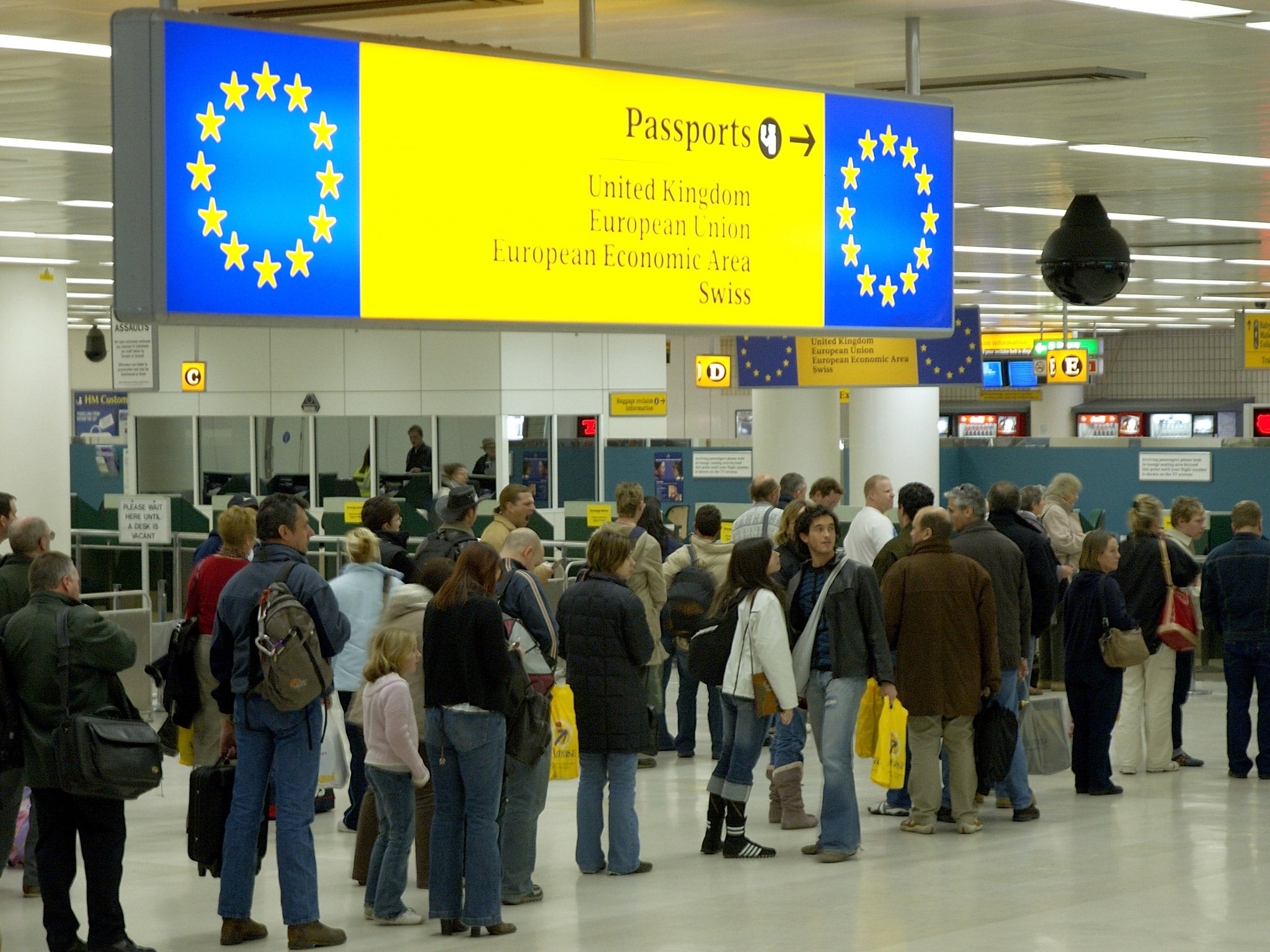Thousands of Romanians and Bulgarians could head to Britain in 2014 to look for work

Your support helps us to tell the story
From reproductive rights to climate change to Big Tech, The Independent is on the ground when the story is developing. Whether it's investigating the financials of Elon Musk's pro-Trump PAC or producing our latest documentary, 'The A Word', which shines a light on the American women fighting for reproductive rights, we know how important it is to parse out the facts from the messaging.
At such a critical moment in US history, we need reporters on the ground. Your donation allows us to keep sending journalists to speak to both sides of the story.
The Independent is trusted by Americans across the entire political spectrum. And unlike many other quality news outlets, we choose not to lock Americans out of our reporting and analysis with paywalls. We believe quality journalism should be available to everyone, paid for by those who can afford it.
Your support makes all the difference.Between 23,000 and 35,000 Romanians and Bulgarians could seek work in Britain next year after access restrictions are lifted, ambassadors from the two countries have told MPs.
They insisted the large influx predicted in sections of the media would fail to materialise - and took a swipe at the UK Independence Party for playing on fears among voters of mass immigration in 2014.
Ministers have consistently refused to put a number on numbers of Romanians and Bulgarians who could head to Britain when they gain full rights to live and work in this country.
Giving evidence to the Commons home affairs select committee, Ion Jinga, the Romanian ambassador, suggested a figure of between 15,000 and 25,000.
Konstantin Dimitrov, the Bulgarian ambassador, who criticised “bombastic” forecasts of numbers, estimated a figure of 8,000 to 10,000. He said: “A major influx is out of the question. That is definite.”
They also argued newcomers from the two countries would contribute more to the UK economy than they took from it.
Mr Jinga said most Romanians workers were aged between 18 and 35, were in good health and did not require medical care or ask for welfare benefits.
He said: “Part of the British media and some politicians have tried to vilify Romanians and Bulgarians, trying to blame them for everything that goes wrong.”
Both men hit out at Ukip, which has distributed leaflets to council electors describing Bulgarian people as a “threat”.
Mr Dimitrov said: “Among other falsities and unacceptable phrases, they contain the word threat and this is extremely serious.
”If you blame a people, an ethnic group, of being a threat to anything in a society I think this is a very serious matter."
Mr Jinga added: ”I was very much sad to see such leaflets could be distributed to the British public. It's very much distorting the image of a community living in Britain.“
Mark Harper, the Immigration minister, told the committee that the range of estimates being bandied about demonstrated the problem in making accurate forecasts and admitted ministers would be held to account if their predictions proved ”hopelessly inaccurate“.
He said: ”That is exactly the reason why the government does not think this is a particularly helpful thing to do.“
Mr Harper added: ”If people are coming and making a contribution, working, paying taxes, coming to study, I don't think people have a problem. What people are concerns about is people coming to take benefits and if there are significant large numbers of people.“
Join our commenting forum
Join thought-provoking conversations, follow other Independent readers and see their replies
Comments